Neuroscience
-
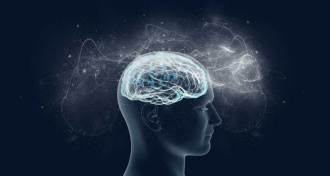 Neuroscience
NeuroscienceBrain scans decode an elusive signature of consciousness
Newly described patterns of brain activity may help reveal the level of awareness in people with brain injuries.
-
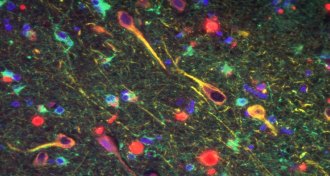 Neuroscience
NeuroscienceNo, we don’t know that gum disease causes Alzheimer’s
A recent study linked gum disease and Alzheimer’s disease, but the results are far from conclusive.
-
 Neuroscience
NeuroscienceRocking puts adults to sleep faster and makes slumber deeper
People sleep better when their beds are gently rocked, a small study finds.
-
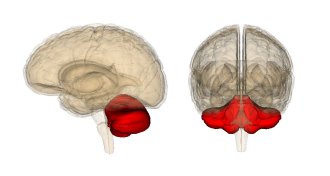 Neuroscience
NeuroscienceThe cerebellum may do a lot more than just coordinate movement
A study in mice finds that the cerebellum helps control social behavior, a result that has implications for autism and schizophrenia.
-
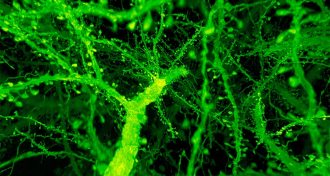 Neuroscience
NeuroscienceNew ways to image and control nerve cells could unlock brain mysteries
Methods that target single nerve cells in mice and fruit fly brains are starting to tease apart the brain’s complexity.
-
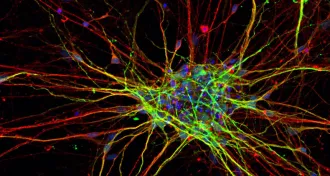 Neuroscience
NeuroscienceNerve cells from people with autism grow unusually big and fast
In some forms of autism, nerve cells develop faster than normal, possibly setting the stage for the disorder, a study finds.
-
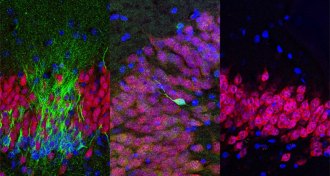 Neuroscience
NeuroscienceThe battle over new nerve cells in adult brains intensifies
It’s not yet time to abandon the idea that adult human brains make new nerve cells.
-
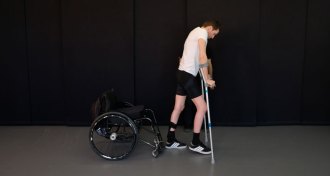 Neuroscience
NeuroscienceZapping the spinal cord helped paralyzed people learn to move again
A handful of people paralyzed from spinal cord injuries have learned to walk again.
-
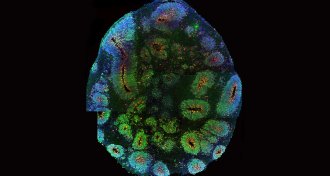 Neuroscience
NeuroscienceBig data reveals hints of how, when and where mental disorders start
The first wave of data from the PsychENCODE project holds new clues to how and when psychiatric diseases such as schizophrenia emerge.
-
 Neuroscience
NeuroscienceHere’s a rare way that an Alzheimer’s protein can spread
Amyloid-beta found in vials of growth hormone can move from brain to brain, a mouse study shows.
-
 Health & Medicine
Health & MedicineA gut-brain link for Parkinson’s gets a closer look
Early evidence suggests that Parkinson’s may be a gut disease that affects the brain.
By Laura Beil -
 Neuroscience
NeuroscienceThe uterus may play a role in memory
In lab tests, rats that underwent hysterectomies had worse spatial memories.